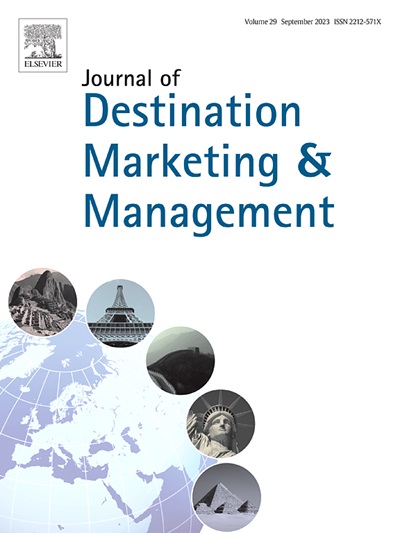Transforming tourist behavior: An integrated emotional and normative framework for promoting environmental intentions at eco-destinations
IF 7.4
2区 管理学
Q1 HOSPITALITY, LEISURE, SPORT & TOURISM
引用次数: 0
Abstract
The sustainable success of ecotourism destinations significantly depends on tourists' intention of pro-environmental behaviour (IPB). This research examines the IPB of tourists visiting Zhangjiajie National Forest Park, China. This research utilizes the newly developed Unified Norm Activation Model (UNAM), which integrates the Norm Activation Model (NAM) with Cognitive Emotion Theory, to analyze how eco-friendly evaluations of destination influence tourists' emotions and subsequent pro-environmental behaviours. The study emphasizes the crucial role of emotional experiences in fostering pro-environmental responsibility and intentions among tourists. A survey of 568 tourists was conducted, and data analysis was conducted with Structural Equation Modeling with AMOS software. The findings indicate that positive eco-friendly evaluations significantly enhance positive emotions and ascription of environmental responsibility, which in turn positively affects personal environmental norms and IPB. Conversely, negative emotions have adverse effects on these constructs. The theoretical implications emphasize the integration of emotional and normative factors in predicting IPB. In contrast, the practical implications suggest that enhancing eco-friendly attributes of destinations fosters sustainable tourists’ pro-environmental behaviour. The findings recommend that destination managers prioritize eco-friendly practices to enhance tourists' positive experiences and promote sustainable tourism with pro-environmental behaviour intentions.
转变游客行为:促进生态目的地环境意图的综合情感和规范框架
生态旅游目的地的可持续成功在很大程度上取决于游客的亲环境行为意愿。本研究考察了中国张家界国家森林公园游客的IPB。本研究运用新开发的统一规范激活模型(UNAM),将规范激活模型(NAM)与认知情绪理论相结合,分析旅游目的地的生态评价如何影响游客的情绪和随后的亲环境行为。该研究强调了情感体验在培养游客的环保责任和意愿方面的关键作用。对568名游客进行问卷调查,利用AMOS软件进行结构方程建模,对数据进行分析。研究发现,积极的生态评价显著增强了积极情绪和环境责任归因,进而正向影响个人环境规范和IPB。相反,消极情绪对这些构念有不利影响。理论意义强调情绪和规范因素在预测IPB中的整合。相比之下,实际意义表明,提高目的地的生态友好属性可以促进可持续游客的亲环境行为。研究结果建议目的地管理者优先考虑生态友好实践,以增强游客的积极体验,并以亲环境行为意愿促进可持续旅游。
本文章由计算机程序翻译,如有差异,请以英文原文为准。
求助全文
约1分钟内获得全文
求助全文
来源期刊
CiteScore
18.60
自引率
3.60%
发文量
46
审稿时长
43 days
期刊介绍:
The Journal of Destination Marketing & Management (JDMM) is an international journal that focuses on the study of tourist destinations, specifically their marketing and management. It aims to provide a critical understanding of all aspects of destination marketing and management, considering their unique contexts in terms of policy, planning, economics, geography, and history. The journal seeks to develop a strong theoretical foundation in this field by incorporating knowledge from various disciplinary approaches. Additionally, JDMM aims to promote critical thinking and innovation in destination marketing and management, expand the boundaries of knowledge, and serve as a platform for international idea exchange.

 求助内容:
求助内容: 应助结果提醒方式:
应助结果提醒方式:


